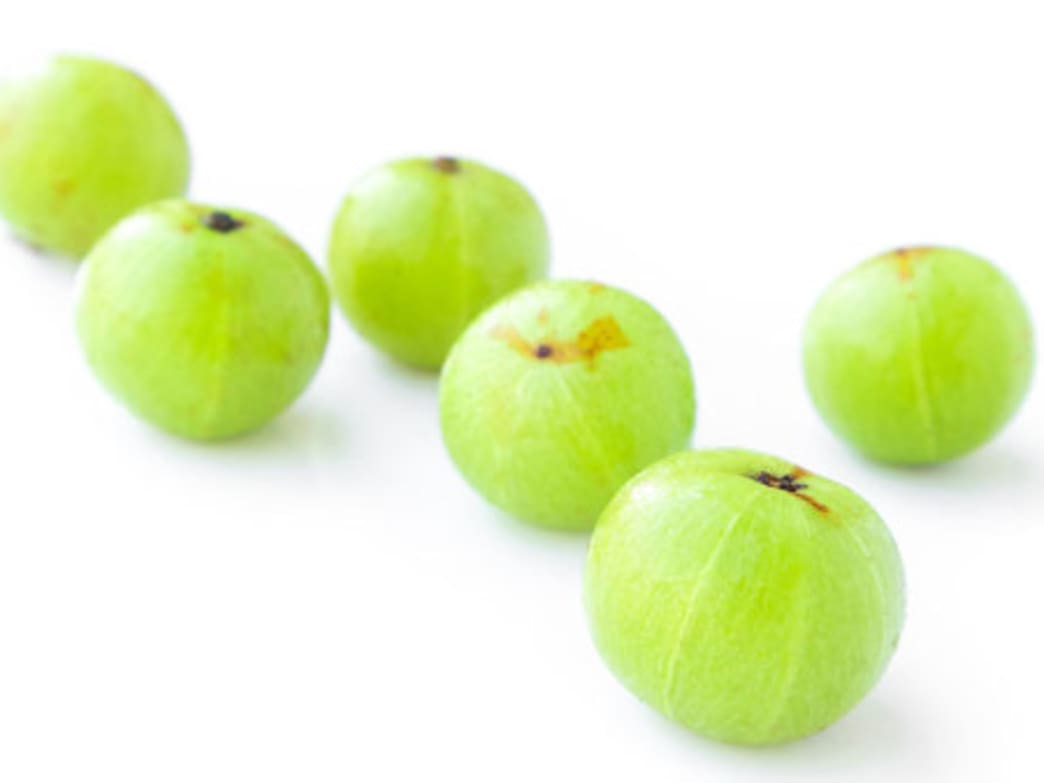
The Top 7 Adaptogen Herbs
The concept of plants with revitalizing or restorative properties that can enhance health has been around for thousands of years, although "adaptogen" is a modern word that has been used to describe them only since the 1940s. Many of the herbs that we know as adaptogens today were first used many generations ago in Ayurveda (the traditional system of herbalism in India) and in traditional Chinese medicine (TCM).
Knowing some of the background on each adaptogen helps when choosing the best herb for a particular situation, and also provides context from the traditional culture, history, and customs that bring the herbs to life in daily use. Here are seven of the top adaptogens:
The top 7 adaptogen herbs
1. Amla
Sometimes known as amalaki or Indian gooseberry, amla is a popular Ayurvedic tonic believed to prolong youthfulness, life, and good memory. It also has a reputation for increasing resistance to disease and nourishing the blood, and is considered an especially effective tonic for restoring the appetite, supporting liver health, and supporting the health of the bones, teeth, and hair. Amla is rich in vitamin C and other antioxidants.
Properties: Anti-inflammatory, antioxidant, antiviral, mild laxative
Did you know? The Ayurvedic tonics triphala and chyawanprash contain amla.
2. Ashwagandha
This adaptogen has a reputation as a soothing nervine that can help anxiety, fatigue, and insomnia from stress. It is also used to support immune system health.

Ashwagandha appears to enhance endocrine function, and can help support an underactive thyroid and balanced functioning of the testes and adrenal glands. It is often used in Ayurvedic formulas to support fertility and vitality in men.
Ashwagandha can also be supportive during heavy periods because it is rich in iron, and has been used in Africa as a uterine tonic for women who miscarry.
Properties: Immune tonic, fertility tonic, nervine relaxant, antispasmodic
Did you know? Ashwagandha can stimulate the thyroid gland, so it's not ideal for people who have issues with overactive thyroid.

3. Cordyceps
Cordyceps is a type of fungus that colonizes on caterpillars. It has been used in TCM to support kidney heath and treat infertility, sexual dysfunction, dizziness, and fatigue. Today, it's used mainly to boost athletic performance and immunity, and as a kidney and lung tonic.
Properties: Liver and kidney protectant, immune aid, fertility tonic, fatigue remedy
Did you know? Several companies now produce excellent cultivated cordyceps grown on soy instead of caterpillars.
4. Eleuthero
Equally suitable for men and women, and especially beneficial for the elderly, eleuthero is gentle, supportive, and good for long-term use. It has nervine actions and offers cognitive support, aids the health of the immune system, and can support healthy cholesterol levels and heart health during stressful times.
In addition to being a good everyday adaptogen, eleuthero offers support for those in highly stressful jobs, or who work long hours or have erratic schedules. It often appears to support the quality of sleep while reducing nighttime waking, but doesn't cause drowsiness during the day. It may also help lower blood sugar levels.
Eleuthero also supports the immune system, helping reduce incidence of colds and acute illness, and is equally beneficial during recovery from chronic illnesses and surgery.
Properties: Immune tonic, nervine, hypoglycemic, endurance booster
Did you know? Eleuthero is an excellent adaptogen for athletes because it supports endurance, shortens recovery time, and appears to protect the immune system during hard training.
5. Holy Basil
Holy basil, or tulsi, is considered one of India's most powerful herbs, and has been used in Ayurvedic medicine for more than 3,000 years. In addition to its traditional use as a tonic, Indian folk medicine recommends tulsi tea as an expectorant for bronchitis and to ease upset stomach and vomiting.
Modern herbalists mostly employ tulsi for issues related to the nervous system, including to support memory, recovery from head trauma, and as a treatment for depression. Tulsi's immune-stimulating properties also make it helpful for environmental allergies.
Properties: Nervine, immune system tonic, antioxidant, antiviral, carminative (gas reliever), diuretic, expectorant
Did you know? Holy basil is a member of the mint family.
6. Maca
Maca, a root vegetable grown in Peru, is widely believed to be an adaptogen. For the most part, it is valued for increasing libido and hormonal health in men and women, although the mechanism is not yet understood. Preliminary research into the eight different varieties of maca shows that each type has a slightly different profile of vitamins, minerals, and other factors.
Properties: Aphrodisiac, nutritive tonic, sperm count booster
Did you know? Although it is eaten as a vegetable in Peru, maca is available only in a dried and powdered form in the U.S.

7. Rhodiola
This adaptogen is a succulent that grows in cool, northern climates. It is native to Canada, Russia, and Scandinavian countries. It's part of the official Russian pharmacopoeia as an antidepressant and nerve tonic. Traditionally, this herb was used to increase mental stamina and physical endurance, boost the immune system during winter, and support fertility and endocrine health in men and women.
Like eleuthero, rhodiola can help support the immune system in athletes, when hard training can sometimes cause a decline in immune function. Rhodiola may also help balance blood sugar levels, improve fertility and reproductive health in both sexes, strengthen the heart, and protect the heart from stress-related damage.
Properties: Antiviral, nervine, immune stimulant, heart tonic, neuroprotectant
Did you know? Rhodiola is often used in herbal formulas designed to boost physical and mental energy, as it can provide a relatively quick lift to mood and energy levels.
Written by Agatha Noveille for Better Nutrition and legally licensed through the Matcha publisher network. Please direct all licensing questions to legal@getmatcha.com.
![[Podcast] Clear your pipes](http://www.drugfreehelpstore.com/cdn/shop/articles/TROHT_10-15-2020.jpg?v=1602875401&width=1450)
